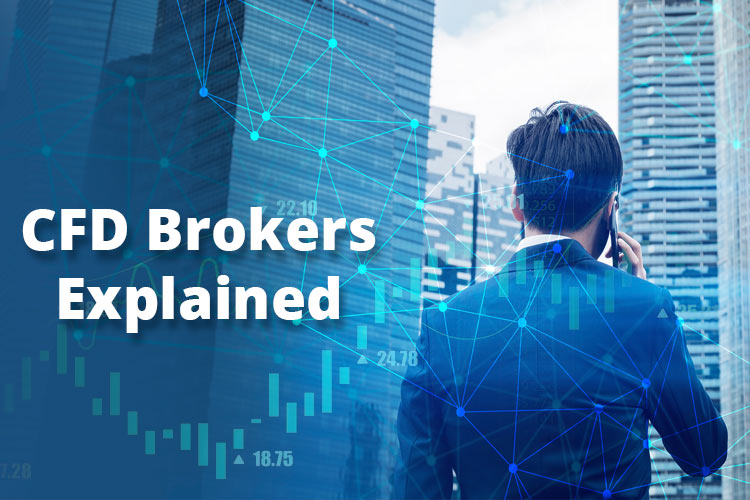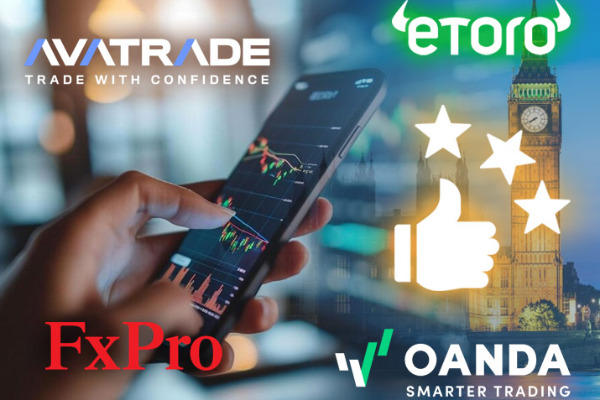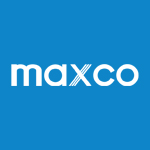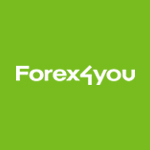CFD brokers are generally known for their specialty in offering tradable assets from various markets. How to find a good CFD broker to diversify your portfolio?

CFD brokers enable investors to diversify their portfolios as they offer a wide ion of financial instruments. From currencies, commodities, stocks, to cryptocurrencies, CFD brokers are available to help traders access such instruments and benefit from the price movements without having to own the assets.
What's more, CFD brokers allow you to control large positions even though you have a small capital. In this article, we will discuss the advantages and disadvantages of CFD brokers as well as the criteria for reliable CFD brokers.
But before that, let's get to know further about CFD itself.
Contents
Understanding CFD
CFD (Contract for Difference) is a financial instrument enabling traders to speculate on the price fluctuations of various assets, such as stocks, indices, commodities, or currencies, without needing to own the underlying asset itself. CFDs have gained popularity as a trading method within financial markets.
When participating in a CFD, individuals agree to exchange the difference in the asset's price between the contract's opening and closing. If the trader believes the asset's price will increase, they opt for a "long" CFD position. Conversely, if they anticipate a decrease, they choose a "short" CFD position.
It's worth noting that CFDs are typically traded through brokers or online platforms. Traders do not own the underlying asset, and the CFD contract is settled in cash upon closing the position.
To determine your potential profit in CFD trading, you can utilize the following formulas:
- Profit Percentage = ((Closing Price / Opening Price) – 1) x 100%
- Profit Amount without Leverage = Profit Percentage x Investment
- Total Profit = Profit Amount without Leverage x Leverage
Here Are Some Reliable CFD Brokers to Choose
- Pepperstone
Known as one of the largest brokers in the world with excellent pricing on its Razor account, Pepperstone provides 1200+ CFD instruments to trade that include forex, commodities, currency indices, cryptocurrencies, shares, and even ETFs. - FP Markets
This broker is well-known for its low-cost trading with 10,000+ tradable CFD assets that cover forex, shares, indices, commodities, bonds, and metals. - XM
XM is possibly among the most popular choices for retail and small-cap traders. This broker is committed to no-requote policy and offers no less than 1000 CFD instruments, where traders can access forex, cryptocurrencies, stocks, commodities, equity indices, precious metals, energies, and shares. - IC Markets
Reputable as a raw-spread broker, IC Markets is an-ASIC regulated broker with competitive features. It's one of the biggest forex brokers in the world that offers 2250+ CFD instruments in forex, commodities, indices, bonds, digital currencies, shares, and futures. - Exness
Another competitive broker for retail and professional traders, Exness is recognized as one of the few brokers with instant withdrawal policy. The company provides hundreds of CFD assets that cover forex, metals, indices, cryptocurrencies, energies, and stocks. - OANDA
OANDA is long known as one of the top brokers with strict regulations but friendly conditions for any trader. They also have top-notch technologies to support clients. In terms of CFD assets, OANDA is commendable in offering 120+ CFD instruments in forex, indices, metals, shares, commodities, and cryptocurrencies.
See Also:
Why Should You Switch to CFD Brokers?
CFD brokers facilitate multi-instrument trades for their clients. With a wide range of investment products comes a wide range of opportunities for you to take advantage of. Let's take a look at some of the benefits of switching to CFD brokers.
Risk Management
Diversification is a risk management strategy where the investment is spread out across different financial instruments. Traders who commit themselves to a single asset class are at risk of blowing up their investment when the market suddenly moves against their positions.
In the same fashion, you can also protect your portfolio by hedging your trades. Hedging involves opening an opposite position in a related asset to offset potential losses.
For example, you can open a sell order to hedge against losses in a buying position. This way, a win in the sell order will offset the loss should the price of the asset go down.
It is true, though, that hedging will also reduce your potential profits. However, risk is an inseparable part of the financial market and you should always manage it.
Tactical Asset Allocation
By signing up to CFD brokers, you will be able to actively adjust your portfolio's asset allocation. This dynamic investment strategy is also known as tactical asset allocation.
Since financial instruments tend to have their own cycle, you can allocate your funds to CFD products that are currently performing well or avoid products that are in the mud. This strategy is only possible if you have access to a wide range of financial instruments across multiple asset classes.
For example, when a recession hits, you may move from trading in high-risk assets to safe havens such as gold, the Japanese Yen, or the Swiss Franc.
Buying Power
In the financial market, buying power refers to the money available for investors to buy investment products. Your buying power is the capital you have in your trading account plus all available margins.
CFD brokers typically provide leverage to their clients, basically giving you the ability to take on larger positions with smaller capital. It should be noted, however, that while leverage increases buying power and potential profits, it also amplifies the risks.
What Aspects Should Be Considered When Choosing CFD Brokers?
It is not a particularly easy task to choose the right CFD broker for you. Below we will provide some criteria for you in order to separate reliable brokers from unreliable ones.
Regulation
Regulation is the first checklist for filtering out unreliable brokers. Unfortunately, scam brokers are still lurking and ready to prey on their next victims. They often promise big profits to attract unsuspecting investors. To avoid such practice, reputable regulators are actively ensuring fair business conducts and protecting their customers.
In theory, regulatory bodies seek to eliminate unethical trading practices, but we'd like to point out that not all of them are to be trusted
The Financial Conduct Authority (FCA) of the UK is one of the most reputable regulators out there. Brokers that are licensed by the FCA are known to be more trustworthy than the rest.
Other regulators you can trust are the CFTC (US), ASIC (Australia), IIROC (Canada), FSA (Japan), CySEC (Cyprus), etc.
See also:
Platforms and Tools
Most CFD brokers provide their clients with the trader-favorite MetaTrader platform thanks to its usability and reliability. Brokers also tend to build their own proprietary platforms for advanced traders
Flagship platforms become a necessity for today's brokers due to the ultra-competitive nature of CFD markets. These platforms usually offer benefits that may not be found in MetaTrader or even in their competitors'.
Other than the platform, trading tools are an aspect that should not be overlooked when you choose a broker. A wide choice of tools will give you various alternatives to approach the markets. Find out whether a broker has platforms and tools that can satisfy your trading needs and style by opening a demo account first.
Services and Education
Serious services mean serious business. CFD brokers that do not bother to serve their clients simply are not worthy of your money.
When you are trading, you may encounter technical issues that require speedy and flawless assistance. Failure to do so on the broker's part may lead to your money vanishing.
Legitimate CFD brokers will also want their clients to succeed. They will put educational resources for you to learn and improve your trading knowledge. This is particularly important for new traders who are still trying to figure out what is what.
Range of Financial Instruments
Although most CFD brokers are used by traders exclusively for one market or two, the core idea of CFD brokers is to offer its clients the opportunity to diversify their portfolios.
For that reason, the range of tradable financial instruments is one of the most important aspects in choosing a CFD broker. Forex, indices, stocks, and commodities are commonly traded in CFD brokers, but it is your task to research how many assets are available in each instrument.
Costs
To some, transaction costs are perhaps the most decisive factor in picking a CFD broker. Assuming that you have shortlisted two brokers, and both are equal in terms of services, tools, or other aspects, the cheaper broker for sure is the definitive choice. Now, what if one broker is more expensive than the other but provides better services?
Let's say that Broker A offers a 1% fee while Broker B charges 2%. These numbers may appear to be low at the surface. However, you will feel the burden of the costs down the road as you trade more often and with larger positions.
Higher costs mean smaller net profits and bigger net losses. Also, let's not fool ourselves here. We all know that the threat of losing trades is always looming. In short, it is wise to choose the cheaper alternative.
Also, make sure to read and understand all the costs of transacting with them, be it the commission, spread, or withdrawal fee, etc. All these costs will only keep piling up and may as well eat your deposit. And it becomes increasingly difficult to regain your original deposit once you suffer losses after losses.
Ideally, you would want to sign up to a broker that can keep your trading costs low. That said, non-transparent brokers are not unheard of. Do extensive research to find out whether there are hidden costs and how the payments are structured.
How CFD Brokers Make Money
We have talked about transaction costs, and these costs are some of the brokers' sources of income in exchange for providing their trading services to traders. The costs come in several forms with distinctive calculation methods.
Spreads
Spreads are the differences between the bid (sell) price and the ask price (buy). CFD brokers primarily make money through spreads. For traders, a lower spread provides a better overall return for winning trades and minimizes the risk in case of unsuccessful trades. As competition gets fiercer, it is not uncommon for CFD brokers to tighten their spreads on trades.
For example, forex CFD for EUR/USD is quoted at 1.2448/1.2446. The bid price is 1.2448 and the ask price is 1.2446. This gives us a spread of 0.0002 or 2 pips which translates to a $20 cost for one standard lot. This is the amount that you directly pay to your broker when you open the trade regardless of the result.
Commission
CFD brokers could also charge you a commission, which is a percentage of the size of your transaction. However, this is a practice that many brokers have abandoned.
That said, there is no such thing as trading without "commission". Traders are bound to pay their CFD brokers with fees such as spreads. Those that market themselves as commission-free brokers may actually afford to do so by widening their spreads. And if they don't, they have to be creative and find alternative ways to generate income.
Financing
Financing refers to the cost marked up by brokers that allows them to finance your trades. Financing is instrumental in attracting retail traders as it allows us to trade with leverage. Basically, leverage is a loan provided by brokers to enable traders to take larger positions. In return, brokers charge financing costs, usually an interest rate plus a small markup, to cover the cost of the leverage that you use.
Hedging
Hedging is not only done by traders. This strategy is also implemented by CFD brokers to mitigate their losses by matching traders' positions and sending the remaining liability to a liquidity provider (market maker, the real market, etc). This way, brokers can protect themselves in case traders make profits.
Please be aware that some CFD brokers are market makers that also provide liquidity. Market makers with questionable or no regulations are more susceptible to unethical trading practices. They would happily trade against you and profit from your losses. Make sure to always verify a broker's regulation by checking the regulator's website.
Non-Trading Fees
CFD brokers may also charge you various fees in regard to your registered account. Usually, they have nothing to do with your activity of buying and selling CFDs. Some of the non-trading fees include the following:
- Deposit fee: A fee when you put money into your account. It can be fixed and it can be a percentage of the total deposit.
- Withdrawal fee: It is the fee that you pay when you take money from your account. This fee will downsize your profit even more and it can be very high.
- Inactivity fee: When you do not engage in trading activities after a period of time, brokers may trigger an inactivity fee. It is introduced by brokers so that you will keep investing your money.
What is the Drawback of Switching to CFD Brokers?
Despite their advantages, CFD brokers also carry a number of disadvantages with them. As a start, your account activation might not be as smooth as you expect. There are also risks that are not present in traditional brokers. Let's see some of the drawbacks of CFD brokers below:
Verification Processes
Credit checks are the routine when you sign up with a broker. As you will loan money from a CFD broker in the form of leverage, the broker in turn will have to verify your legitimacy as a trader. Brokers can decline your registration if you do not meet their specific requirements. These processes can be particularly painstaking for traders who regularly switch from one broker to another.
See Also:
Leverage Risk
Leverage is a two-edged sword, a silent killer. For example, you want to buy 100,000 units of EUR/USD. Since you only have $1,000 in your accounts, you have to use a leverage of 100:1. Let's say you end up losing the trade by 10 pips, which is $100 in real value. That's already 10% of your account gone. Therefore, it is very much wise to use leverage with caution.
Long-term Position
Yes, you can hold CFD positions as long as you want providing that you extend the CFD deadline. This, however, comes at a price. Remember the financing cost? CFD brokers will finance your trades with leverage so long as you pay the interest rate. The longer your positions are open, the bigger the interest charged. Thus, long-term positions might not be the best option for CFD trading.
On Stock CFDs
Stock CFDs present their own problems for CFD brokers. These problems are related to the cost of, technical issues, and lack of experience in adding stock to their tradable instruments. Let's take look at how the current state of stock CFDs is.
- Costly Market Data
Licensing data from stock exchanges is expensive and legally complicated. Exchanges are well aware of the current state of the trading industry and have introduced new policies accordingly. Today, CFD brokers who wish to add stocks in their offering must undertake pre-audits and pay significant fees for the license. Due to these hassles, many CFD brokers are not actually exchange members. Instead, they work with other firms that have access to the live market. - Unsuitable Platforms
The popular MetaTrader platforms might be suitable enough for most CFD products, but that is not the case with stock CFDs. For example, the MT5 does not offer a basic search function because the platform only lists a stock's symbol instead of providing its name. Another one; brokers that use the MT4 do not have direct access to the market, so they have to rely on bridge providers. - Slow Execution
CFD brokers can execute trades in milliseconds. Their technology is fast, but not fast enough in dealing with exchanges that operate within microseconds. This may result in slow market data and slippages which can affect your positions quite significantly. - Lack of Experience
When entering the stock market, CFD brokers compete not only with one another but also directly with the more experienced investment firms and banks. Investment platforms offered by these entities are usually more convenient and appealing for stock traders.
See also: List of Forex Brokers for Stock Trading
Final Words
CFD trading gives you the ability to exchange financial instruments without owning ones. CFDs are usually traded with CFD brokers that have a wide ion of financial instruments across multiple assets. This gives you an opportunity to diversify your portfolio and apply a variety of strategies related to risk management and asset allocation. Another attractive factor of CFD brokers is that you can trade with leverage.
When it comes to choosing the best CFD broker, you should do research on your own. Learn and understand the reliability of a broker through its regulation, platforms, tools, services, education, tradable instruments, and costs including the hidden costs. Also, we recommend that you open a demo account first before committing your hard-earned money.

 Dedicated FREE FOREX VPS
Dedicated FREE FOREX VPS Free FOREX Virtual Private Server
Free FOREX Virtual Private Server MT4 Demo Contest, Get $500
MT4 Demo Contest, Get $500 Sign Up for an Account, Claim 60% Deposit Bonus
Sign Up for an Account, Claim 60% Deposit Bonus Free MT4/MT5 VPS 2024
Free MT4/MT5 VPS 2024 Send E-mail and Get Free Merchandise
Send E-mail and Get Free Merchandise $1K Refer a Friend Bonus for Pepperstone Pro clients
$1K Refer a Friend Bonus for Pepperstone Pro clients Maximize Your Earnings with 100% Deposit bonus
Maximize Your Earnings with 100% Deposit bonus Trade to Win, $5,000 Monthly Demo Contest
Trade to Win, $5,000 Monthly Demo Contest Claim 30% + 15% Deposit Bonus from LiteFinance
Claim 30% + 15% Deposit Bonus from LiteFinance











